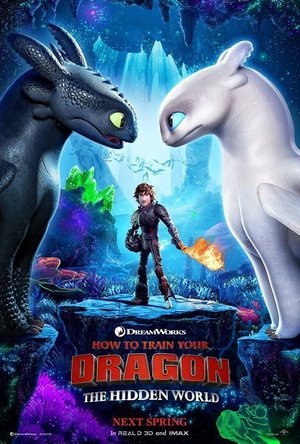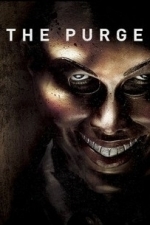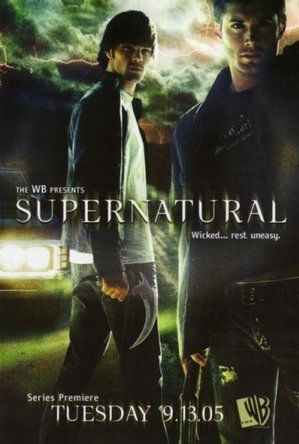Gareth von Kallenbach (980 KP) rated How To Train Your Dragon: The Hidden World (2019) in Movies
Jul 2, 2019
The film brings back the same core cast of characters as the previous two movies, with Hiccup (Jay Baruchel), Astrid, (America Ferrera), Valka (Cate Blanchet), Eret (Kit Harrington), Gobber (Craig Ferguson), Snotlout (Jonah Hill), Ruffnutt (Kristen Wiig), Tuffnut (TJ Miller), Fishlegs (Christopher Mintz-Plasse), and flashback appearances of Stoic (Gerard Butler).
The story opens on what is supposed to be a “stealthy raid” but isn’t, quite.
We learn that Hiccup and his band of friends (both Dragon and human) are on a continuous mission to rescue captured Dragons from the poachers determined to capture and exploit them.
Hiccup and his friends then bring the rescued dragons back to Berk which is now a “Dragon-Viking utopia”. This arrangement, however idyllic, does not appear to be sustainable in the long-term. It is crowded and messy and Berk is just simply running out of room to house any more Dragons! Astrid and Gobber are concerned that housing all the Dragons on Berk makes the settlement a target for the Dragon hunters, endangering the entire community.
Hiccup is still exploring and reading his father’s old records, and remains convinced that there is “more” out there. He enlists Astrid’s help in finding the hidden world where he believes that all of Berk could move to, with their Dragons to leave in peace and secrecy.
After an attack on Berk, the rest of the community is convinced that Hiccup is right (even as he is not fully convinced himself of his ability to lead them successfully) and agrees to follow him in his search for the Hidden World sanctuary.
The story follows them on their quest and the dangers and successes of the journey to find a new, more suitable home.
The music, animation, and scenery in this movie is great. The details are phenomenal, from the characters’ hair, to the movements of the Dragons, to the Hidden World cave details, really show the attention that was paid in making this movie stand out!
The story line itself, as a continuation of the previous two movies, flows well, and follows an appropriate arc, both as far as relationships as well as time.
The addition of a new Dragon, and the relationship that evolves between the Light Fury and Toothless brings a new level of evolution to the existing relationship between Toothless and Hiccup, and plays on the adage of “if you love something, set it free”.
I laughed throughout the movie, at the dragons’ antics and expressions and interactions with their humans and each other. I held my breath in anticipation at some aspects, and heard myself say ‘oh no!” under my breath at one point as well. Dragons 3 drew me in from the start, and didn’t let go till the very end of the credit rolled. (We stayed until the lights came back up, and even the credits had me smiling with their small surprises!)
I found myself both wishing that this installment wouldn’t be “the end” as well as acknowledging that this story provided a fitting end to the series of films.
If there MUST be an end, this film wraps up the story nicely and provides closure, while yet leaving enough room to imagine what might come next.
I would give this movie 5 out of 5 stars, and while we did not see it in IMAX or 3D, if you have those options available, I would recommend that as well!
Gareth von Kallenbach (980 KP) rated The Wolverine (2013) in Movies
Aug 6, 2019
Here in 2013, Hugh Jackman reprises his role for the 6th time, making his way to Japan to bring about one of the community’s favorite portions of the mythos: the way of the samurai, Muriko, and the Silver Samurai.
The story opens with the bombing of Nagasaki, and Logan’s survival of the atrocity. He saves a Japanese soldier from suicide, and then from the Atomic Bomb.
Fast forward to the present and we have a broken mountain man that was once Logan (Jackman). He lives in the hills, away from people, because he no longer wants to be a soldier. His immortality has become a curse.
After a rousing row with some local hunters, a representative for Yashida (the aforementioned Japanese soldier) talks Logan into going back to Japan to pay his respects to a dying man.
The story spins away from there on a turbulent ride that is equal parts drama and action.
Let’s get to my thoughts.
—————The good ———————-
The cinematography, script, acting, and editing was top-notch. The sets, costumes, effects, stunts and fight scenes were all pleasurably executed. This was a very well-made movie.
—————-The bad ————————
The plot holes were too numerous to be anything but amazingly distracting. Without giving too much away, here are just a few:
During a ceremony, in broad day light, on a huge roof, one of the main secondary characters is lurking. With as many people and security, this was HIGHLY implausible. Laughable, at best.
Ninjas are not a real thing, and they never were. They were a fable; a story told without any factual, historical basis, and their presence cheapened the film.
When the A-bomb was dropped, those who survived the actual explosion still died to the radiation within a certain range. There is no way Yashida would have survived Nagasaki the way the event was portrayed in the film.
At some point, Wolverine loses his ability to heal. It’s never clear if his regenerative powers are fully gone or just suppressed, but he can’t heal well enough to stop bleeding. With this in mind, his survival of so many shots to the body is extremely questionable.
On that same note: if he can’t heal, how did the holes made by the blades extruding from his hands heal up? After every scene in which the blades come out, his hands remain free of blood or marks.
Wolverine was clearly killing people with his claws, which I liked, but there should have been far more limb and torso severing, given how sharp his adamantium blades are and how overwhelmingly strong he is supposed to be.
The Wolverine character has an unmatched sense of smell, but it was never used in the movie, not even once. The opportunity presented itself multiple times.
These are just a few examples, and there were many more jarring discrepancies. There were so many that it detracted from the movie in an unforgivable way. Even this was totally separate from the comic-to-silver-screen transition, for which those remarks are better left to someone more learned in the comic realm.
The part I enjoyed the most came during the last 30 seconds of the film, as part of the credits. It sets up a future film. Enjoy.
All in all, The Wolverine was great. That said, if you have a critical eye, like myself, you will find many faults.

Roger's Mushrooms (Lite)
Reference and Education
App
NOTE: THIS IS THE 'LITE' VERSION OF ROGER’S MUSHROOMS. IT OFFERS THE SAME FUNCTIONALITY AS THE PRO...
Jesters_folly (230 KP) rated The Purge (2013) in Movies
Jan 28, 2021
1) We have the purge itself, a new political party has come in and started titular Purge, one night a year where any crime is legal (although the emphasis is on killing and, via subtext, rape). There are a few exceptions stated at the start of the film and, although it's not directly stated, it seems that minors are exempt, in that they can be targets but not actually participate in the killing.
2)The 'Boyfriend' subplot. This could have led to the main plot but seems to be there just to keep us off track at the beginning.
3) The bloody stranger - ok he's needed as he's the main McGuffin
4) The Freaks, Yes the film needs it's antagonists and it's sometimes good to throw in a red herring but we have; The Freaks, Henry (the boy friend), The Bloody stranger who is suspected as being dangerous when he first arrives, even Janes Sandin looks like he could be the antagonist when he is going to throw the stranger out of the house, then we have...
5) The neighbours - even from the start of the film there is something off about them.
6) Add all of this together with a lot of politics and you have a very layered film.
The first half of the film is mainly set up, setting up the idea of the purge and introducing the characters, there are a few shots of violence in the beginning but the film starts off slow. Then it explodes in violence.
Although the concept is the same, The Purge is a different beast to something like 'The Strangers', both films spend time building up to the the action but, when the action starts, the Purge is much faster paced, mainly because there are more 'hunters' and they have guns.
The Purge is also a very political film but it doesn't go down the 'rich vs poor' root that a lot of films do, this is mentioned a bit but only to back up the thinking behind some of those who partake in the event. The film shows two sides of the Purge and mentions two more, you have those that want to take part in the event and those (like the main family) who don't, the Sandin's just want to get through the night where as the 'Freaks' happily take part in it. It's also mentioned that there are those who can not protect themselves (the poor) and those that object.
After watching it I am left with two questions:
1) what happened to Henrys body? We last saw it in Zoey's room, no one mentioned moving it and it couldn't have been taken out of the house but it was never seen when the Freaks were going room to room, they even went into the room where it should have been.
2) were the cookies poisoned? The neighbour said they saw the shutters come down (pulled off) and decided to take the opportunity to kill the Sandins but the hatred was already there so could the cookies have been another way to kill them off. It's true that they would have had to have been cooked before the purge officially started but, going by when they given, they would not have been eaten until either a few minuets before the start or after it had started and I doubt that anyone official would pay too much attention to the bodies after the purge. There would be too many even if they wanted too.

Kindergarten Phonics Island Adventure - Learn to Read Montessori Games with Puzzle Animal Train for Kids Hooked on Reading by Abby Monkey®
Games and Education
App
67% OFF SALE - TODAY: September 23-30, 2015 ***** Parents‘ Choice Awards’ winner *****...

Phonics Island • Letter Sounds
Education and Games
App
***** Parents‘ Choice Awards winner ***** Developed by an award-winning education studios,...

GPS Tracks
Navigation and Health & Fitness
App
"One of the better GPS apps for sporting enthusiasts for the iPhone..." - Bryan Wolfe, AppAdvice.com...

GPS Tracks HD
Navigation and Travel
App
"One of the better GPS apps for sporting enthusiasts for the iPhone..." - Bryan Wolfe, AppAdvice.com...

Phonics Island, Letter Sounds games & Alphabet Learning: Preschool Kids Reading
Education and Games
App
***** Parents‘ Choice Awards’ winner ***** Developed by an award-winning education studios,...
Connor Sheffield (293 KP) rated Supernatural - Season 1 in TV
Apr 20, 2017
The first thing I loved about this show was that the lore's it followed were real from the legend of Bloody Mary, to the Woman in White and even a Wendigo. I knew about these legends but this show taught me more about what people believed about them and how they came to be, so this show is somewhat educational as well as being a great action horror drama show.
SPOILERS AHEAD!
So in Season One we are introduced to a family who witness the death of their mother/wife as she bursts into a fiery explosion on the ceiling of baby Sam's nursery room. Fast forward years later and Sam's in college/university and has left his past behind him until his brother Dean shows up to tell him their Dad has gone missing after a 'Hunting' trip.
This is where we learn that Sam, Dean and their Father, were actual in the life of Hunters who hunt down demons, ghosts/spirits, and monsters.
This show takes you one a journey with Sam and Dean saving lives from all sorts of strange and horrifying evil beings, who don't always turn out to be an evil being, just tortured or maybe even a being trying to warn them of a greater evil.
The effects are on par with a lot of big budget movies, even better than some of the most recent box office hits and in 2005, that says a lot about how the show can only get better with age. And it has!
Writer Eric Kripke truly did create something spectacular and to say that it's still running to this day, with a whole 12 seasons finished and a 13th season coming soon, it's hard to believe that it can still stay fresh and entertaining with this genre, but when you watch this show I guarantee you'll be entertained as there are dozens of pop culture references in every episode from X- Files to Lord of the Rings and many more, and with soundtracks that include rock and metal bands such as AC/DC it's hard to wrap your head around just how awesome this show is.
Many episodes are either named after movies ("Children Shouldn't Play with Dead Things", "The Usual Suspects", "I Know What You Did Last Summer") or classic rock songs ("In My Time of Dying", "Born Under a Bad Sign", "What is and What Should Never Be", "Sympathy For The Devil", "When The Levee Breaks"). - Copied from IMDB
The on screen chemistry between characters is brilliant and more often than not, even in serious situations, it can become hilarious with cheesy one liners or pop culture references used with perfect timing to lighten the mood of the show.
Sam and Dean (portrayed by Jared Padalecki and Jensen Ackles) have some of the best character development that I've seen in a show, and sometimes throughout the different series' the formula of arguing, falling out, and coming back to one another, can become somewhat tedious and repetitive making you scream at the TV saying "WHY!? YOU KNOW YOU'RE JUST GOING TO REALIZE YOU NEED EACH OTHER!" but if you think about it, that's how brothers would be in this situation. Having to spend every day with your brother on the road fighting the unthinkable, it would be stressful and tensions would run high, but you'd soon realize that after everything you've been through, who else could you feel comfortable around?
If you're into the paranormal or want to start learning more about different paranormal legends then this is the show for you.
TIP: For further entertainment, watch the bloopers. Some of the most hilarious clips I have ever seen from a show ;)



